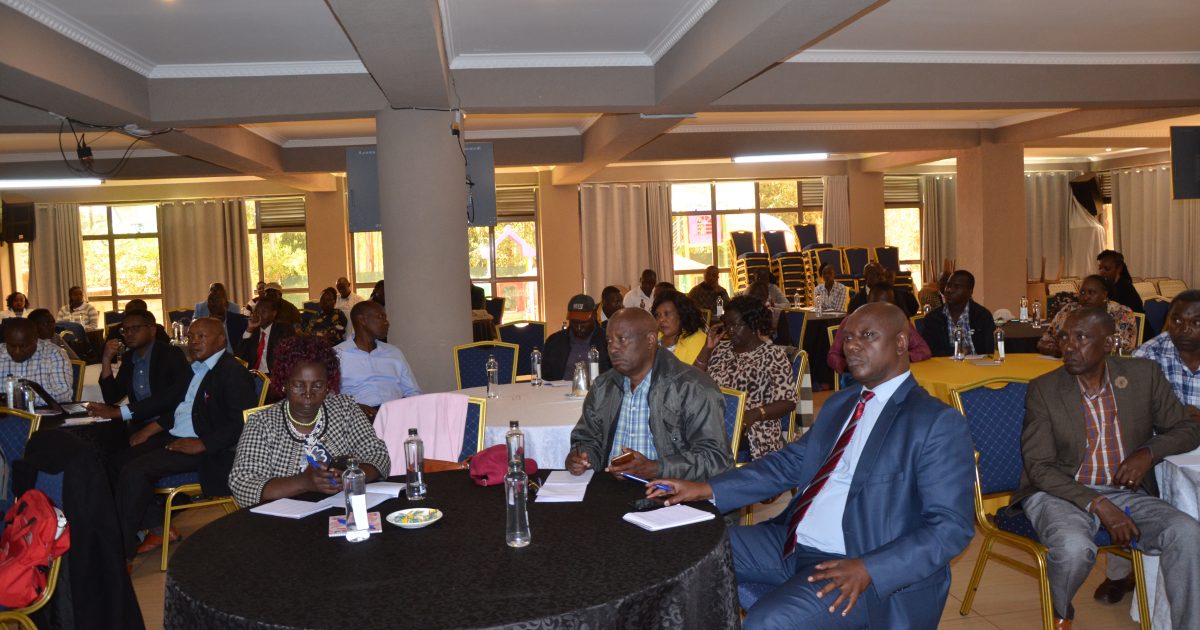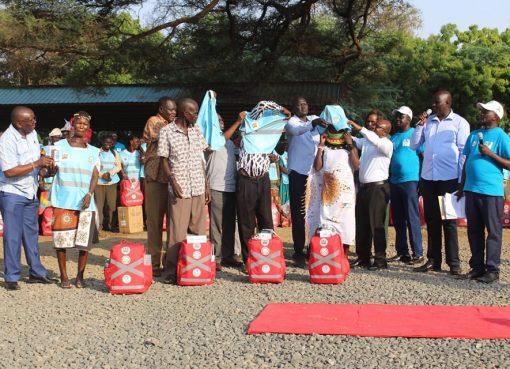The Nyeri County department of Water, Environment and Climate Change is working on a proposal which will see the county dedicate a percentage of its annual development budget to climate change mitigation.
The proposals are contained in the Climate Change Act and the Climate Change Fund Regulations which are set to be presented before the executive for incorporation in the Nyeri Finance Bill 2023. According, Nyeri Climate Change Director, Ms Yvonne Mathenge, the move is the first step towards ensuring that the county is able to fund climate change mitigation strategies.
“The Climate Change Act and the Climate Change Fund Regulations are proposing that at least one per cent of the county’s development budget be set aside for climate change strategies. The model will be similar to the county integrated development plan where the county government dedicates funds in the budget to go towards the programmes,” said Ms Mathenge.
“Our hope is that moving forward climate change mitigation will not just be about dependency on foreign support, we want to ensure that as a county, we have a strategy that we can start implementing some of these measures even as we are looking out for external assistance,” she added.
Ms Mathenge was speaking at the sidelines of a climate multi-stakeholder meeting that brought together climate change experts, community based organisations working on climate smart agriculture projects in the eight sub-counties in Nyeri and government officials. The workshop was organised with the aim of validating views on the draft Participatory Climate Risk Assessment and the County Climate Change Action Plan. The two documents, Ms Mathenge said, will further shape the county’s effectiveness in tackling the effects of climate change.
A report released by the Nyeri meteorological department in April this year classified 50 per cent of the county as arid and semi-arid whereas 85 per cent of the county, as food insecure. Ms Mathenge noted that drought, landslides, floods, pests and diseases and frost had been identified as the emerging negative effects of climate change that the county was battling.
“Besides capturing the status of the county with regards to climate change, the two documents also capture how many people have been getting food aid. We are also doing climate projections because we have realised that there is what we can do to mitigate the effects and there are measures that can be taken to adapt to the prevailing weather conditions,” said Ms Mathenge.
The strategies have been split into sectors namely disaster and risk management; food and nutrition; water and blue economy; environment, tourism and wildlife; health and human settlement and manufacturing and trade which had been identified as critical. The director said that the mitigation plan will be implemented over a five year period in the eight sub-counties.
“We have already drawn the strategic plan and identified some of the plans to be implemented. For the ones that have already been employed before and are working we have started to upscale them and for the ones that are not working, we are coming up with fresh strategies,” she said.
By Wangari Mwangi





